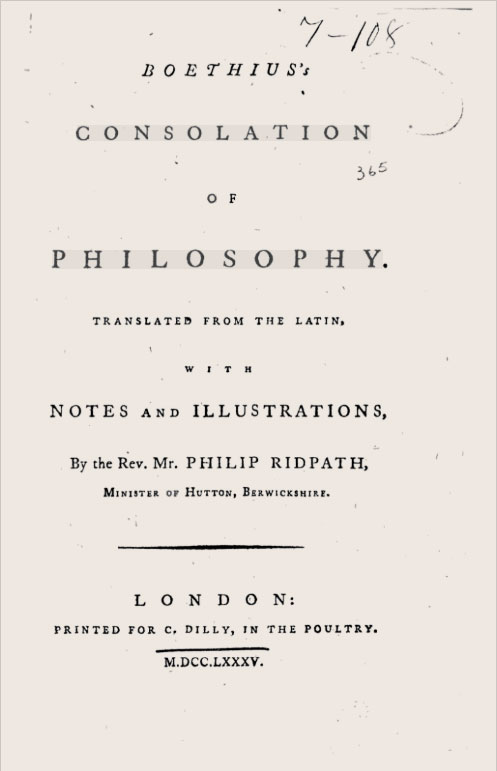Death Row Bestseller
Boethius’ book was a bestseller for over a millennium. By Dan Graves, layout editor, Christian History.

FOR ABOUT 1,100 years Boethius’s Consolation of Philosophy was a bestseller. It was translated into the vernacular of all western European nations. (Alfred the Great produced an Old English version.) Medieval students studied it. Its popularity was so great that several hundred manuscript versions still exist.
What made it so popular? First there were the circumstances in which it was written. Boethius was a high-ranking Roman, an advisor to the sixth-century Germanic king, Theodoric. At the peak of Boethius’s career, the king’s caprice thrust him into a foul prison where he faced torture, filth, and deprivation. Readers could sympathize. In the Middle Ages, before the concept of human rights was developed, Boethius’ fate was liable to befall anyone.
While imprisoned, Boethius imagined Lady Philosophy entering his cell. He posed questions and she drew answers from him. The quality of those questions and answers is another reason for the book’s popularity.
Why do bad things happen to good people? How should one behave given fortune’s fickleness? What is the true good? Is free will possible or does God’s foreknowledge force the outcome of events? What is the nature of evil? Boethius’s answer to the last question is that evil is perverted good but God is continually bringing good out of it.
Ultimately, the Consolation’s popularity was owing to its compelling narrative. The work he created was highly original, skillfully blending dialog and poetry, philosophy and feeling. Prisoners in centuries to come would imitate it, including Sir Thomas More. None came up to the standard set by the original. Through the Consolation, one could say God worked good out of Boethius’s sufferings.
[NOTE: This is a expanded version of a review that appeared in Christian History issue 116. Read the rest of the reviews at Twenty-five Writings that Changed the Church and the World.]



